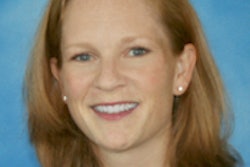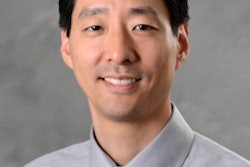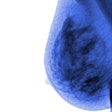Thursday, December 4 | 10:40 a.m.-10:50 a.m. | SSQ01-02 | Room E450A
How aware are primary care physicians of breast density notification laws? And if they aren't aware, how does that affect patient care? Researchers from the University of California, Davis plan to address these questions during this Thursday morning scientific session.California passed its breast density notification law in April. Dr. Kathleen Khong and colleagues investigated how well primary physicians knew about the law and its impact on outpatient primary care practice and management.
Khong's group distributed an online survey to 174 physicians in a single primary care network in February 2014. The responses were anonymous. A total of 77 physicians participated, with 39% from internal medicine, 47% from family medicine, and 9% from ob/gyn. Of the survey respondents, 53% were female, and 72% had been in practice for more than a decade.
Almost half the respondents were not aware of California's breast density law, the researchers found. Other results included the following:
- 32% noticed a change in patient levels of concern about breast density in 2013 compared to prior years.
- 5% of primary physicians were "completely comfortable" answering patient questions about breast density, 25% were "mostly comfortable," 51% were "somewhat comfortable," and 11% were "not comfortable."
- 48% of survey participants reported that they rarely answer questions about breast density.
- 20% reported that they had ordered supplementary screening tests for women with dense breasts who had no other breast cancer risk factors; tests included breast MR (44%), whole-breast ultrasound (22%), tomosynthesis (11%), and other, unspecified tests (22%).
The survey findings suggest that enacting breast density notification laws without providing adequate primary physician education and resources is unlikely to benefit patients, Khong's group concluded.




















